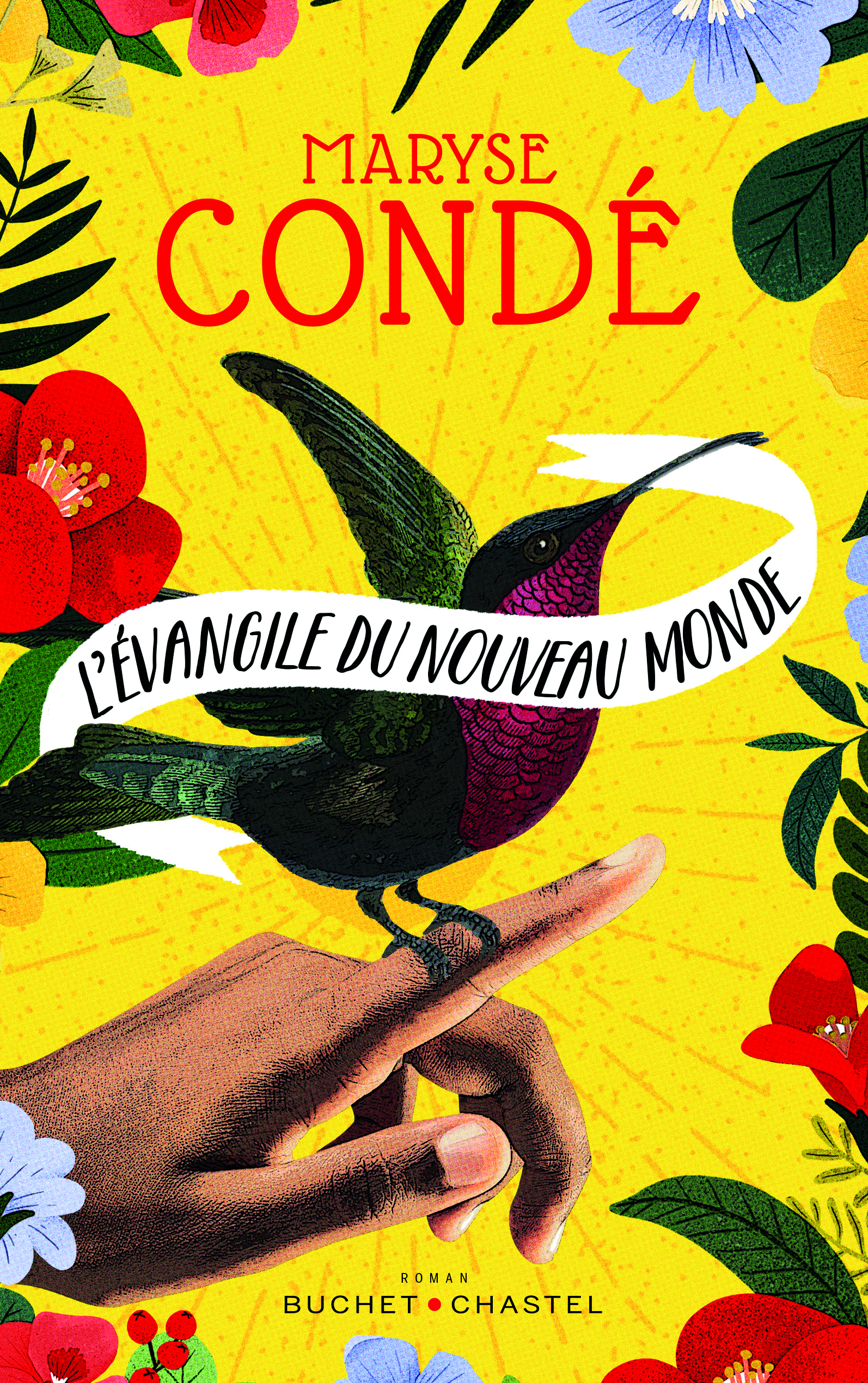
At 84, this major writer from Guadeloupe has published a novel she claims is the last of her career. An engaging work laced with sarcasm and humor, in which her talent addresses the universal power of love.

The new novel by Maryse Condé begins like a fairytale. We are in Guadeloupe, “an island, as one would say, not as large as Australia, but not small either… generally flat but embossed with thick forests and two volcanos.” One senses from the facetious and lightly ironic tone that this tale will not be banal. In fact, Maya, a young woman abandoned by her cruel lover, gives birth in a modest structure. On the straw, in a “biblical scene,” the newborn, named Pascal, rests close to a donkey that warms him with its breath. In Maya’s dreams, an angel tells her that this young boy is going to change the face of the world. Mr. and Mrs. Ballandra, owners of the barn, are very pious and take Pascal as the Messiah, a new Jesus, who, as in the Bible, will perform miracles… Maryse Condé thus offers us a rewriting of sacred Christian texts. She does so by oscillating between farce and a softer tone, full of clemency for her characters. The farce creates a sarcastic portrait of our society embodied by consumerism, stupidity, fear, and hatred. In Conde’s bible, the angels wear shiny boots, and it is a drunkard who announces the miracle. As Pascal grows up, he discovers his magic powers as he travels the world confronting contemporary problems. As an adult and fisherman, he is captivated by our era, “streaked with attacks and marked by violence.”
Endowed with a revolutionary temperament, disgusted by injustice, he concentrates on the condition of the most abject poor, the plight of the mistreated woman, the misery and racism in South Africa and India. He treks across the planet seeking traces of his biological father. Here, Maryse Condé is no longer ironic. Like Pascal, she shares his disgust, and shows a certain tenderness for those forgotten by the world-at-large. This book is not simply a New Age Gospel, where all the chapters of the Bible are retold, from Cana to the betrayal by Judas. It becomes an adventure novel, engaging and optimistic.
In many ways, Maryse Condé resembles her hero. The 84-year-old writer from Guadeloupe, winner of the Alternative Nobel Prize in Literature, has spent her life facing oversights and rebellions. While she does not take herself for Jesus, she shares the love for other as a Christ-like figure, as well as an unsatiable curiosity that keeps her in perpetual movement and gives her “a heart for laughing and crying,” to cite the title of her autobiographical book published in 1999. Like her hero, she has always felt liberated and universal by dipping into African traditions or classic English literature in writing her novels. As Jesus could multiply the loaves, Maryse Condé knows how to make magic in the kitchen, and called one of her best books “Morsels and Marvels,” about her relationship to food, travel, and writing. She lived in Africa, during an “honest life,” to translate the title of her autobiography, “Vie Sans Fards,” as well as in New York, and currently Provence. Like Pascal, she suffered heartbreak and betrayal, which she weaves into her storytelling. Especially, like her hero who is metis, Black and White, and like Jesus, who was man and god, she believes that the human being “is not entirely black, nor entirely white.”
Sadly, Maryse Condé has lost her eyesight, and dictated this rich novel. She has however not lost her intelligent way of looking at life, her faculty for revisiting tales, or her gift of transcribing her impressions—culinary or erotic—to the art of storytelling, which she always enjoyed. In this sense, this book is a literary miracle.
BIBLIOGRAPHY
- Hérémakhonon (10:18 1976 puis Seghers, 1988)
- Une saison à Rihata (Robert Laffont,1981)
- Ségou, tome 1 : Les Murailles de terre (Robert Laffont, 1984)
- Ségou, tome 2 : La Terre en miettes (Robert Laffont, 1985)
- Pays mêlé, suive de Nanna-ya (Robert Laffont, 1985)
- Moi, Tituba sorcière… Noire de Salem (Mercure, 1986)
- La Vie scélérate (Seghers, 1987)
- En attendant le bonheur (Robert Laffont, 1988)
- Hugo le terrible (Sepia, 1989)
- Traversée de la mangrove (Mercure, 1989)
- Les Derniers Rois mages (Mercure, 1992)
- La Colonie du Nouveau Monde (Robert Laffont, 1993)
- La Migration des cœurs (Robert Laffont, 1995)
- Desirada (Robert Laffont, 1997)
- Célanire cou-coupé: roman fantastique (Robert Laffont, 2000)
- La Belle Créole (Mercure, 2001)
- Rêves amers (Bayard Jeunesse, 2001)
- La Planète Orbis (Jasor, 2002)
- Histoire de la femme cannibale (Mercure, 2005)
- Chiens fous dans la brousse (Je bouquine, 2008)
- Savannah blues (Je bouquine, 2008)
- En attendant la montée des eaux (Pocket, 2010)
- La Vie sans fards (Pocket, 2012)
- L’Évangile du nouveau monde (Buchet-Chastel, 2021)…
Auteur : Baptiste Rossi

